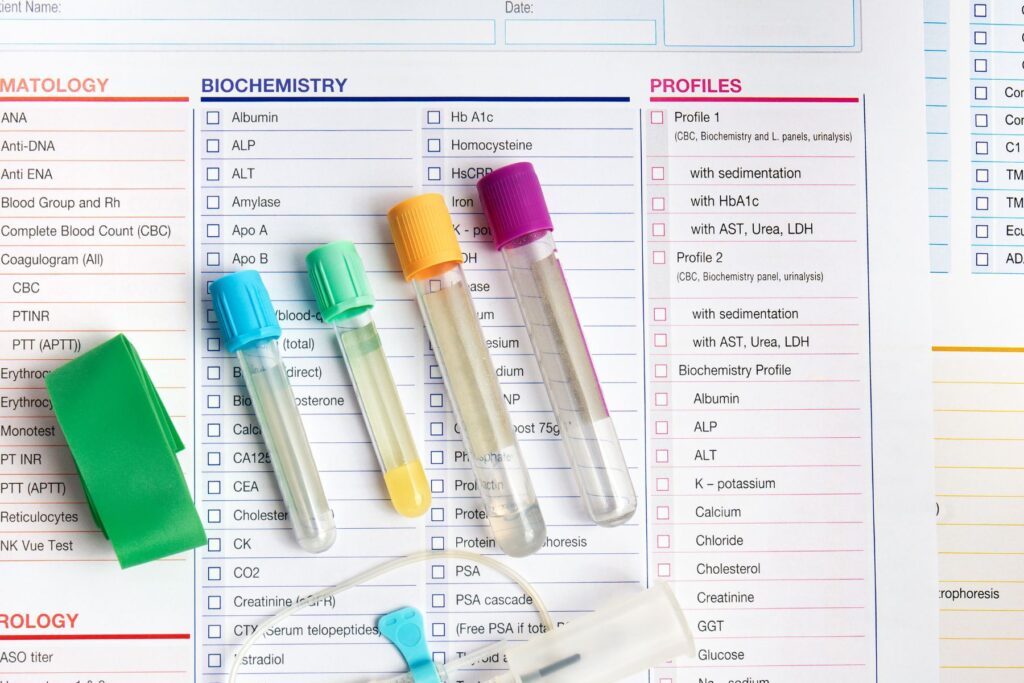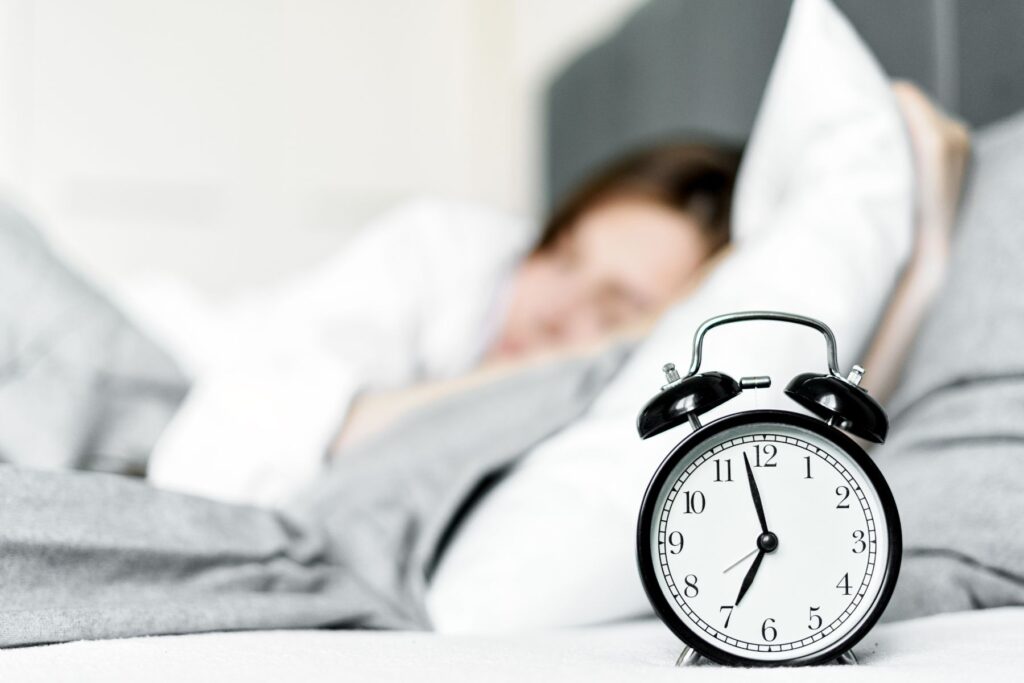Important Bloodwork for Athletes and Active Women
October 2, 2023

As an active woman or as an athlete have you ever wondered if you should be keeping an eye on certain vitamins, minerals, or hormones in your bloodwork more closely than your non-active counterparts? The answer is yes!
Iron, vitamin D, cortisol, vitamin B12, and a hormone panel are all helpful blood markers to monitor for active woman and athletes. Why exactly are these specific blood markers so important for active women? Let’s dive in and find out!
Iron
Iron is an important mineral for growth and development but its role in red blood cells and oxygen delivery for our exercising muscles is why it’s so important for athletes.
Female athletes are at particular risk for deficiency of iron. The main causes include blood loss during your menstrual cycle and eating patterns favored by females that are low in meat and dairy which are good sources of the more bioavailable form of iron. Iron deficiency in active females and athletes can cause fatigue, weakness, GI upset, tiredness, difficulty concentrating, and shortness of breath. If iron deficiency is severe it can cause a condition called iron deficiency anemia.
There are steps you can take to increase iron intake and absorption if you are iron deficient but the first step is to get bloodwork with an iron panel and ferritin level to assess your iron status and the need for nutrition intervention.
Vitamin D

Vitamin D has many important roles in the body including promoting calcium absorption, bone growth, supporting immune function, and promoting cell growth to name a few.
Sun exposure can promote vitamin D formation in the body and vitamin D is also found in high amounts in a few foods such as eggs, salmon, mushrooms, fortified milk, cheese,and broccoli. Unfortunately, many athletes, especially female athletes, are low or deficient in vitamin D, especially those who have little sun exposure.
Getting a vitamin D level as part of your bloodwork as an athlete can help to prevent frequent illnesses and bone injuries that can result from vitamin D deficiency. To learn more about vitamin D’s role in bone health click here.
Cortisol

Cortisol is a hormone that is elevated in response to stress. When it’s elevated for short amounts of time it can benefit athlete performance by increasing awareness and vigilance. However, chronically high stress levels can lead to either elevated or depleted cortisol. This can result in disturbed sleep, inflammation, suppression of immune system function, and hormone dysregulation. Common reported symptoms by athletes with high or low cortisol are poor recovery, faster time to fatigue during workouts, and elevated heart rate during exercise.
Checking a cortisol level in your bloodwork, especially for female athletes given its role in hormone function, can benefit performance and recovery.
Hormone Panel
For female athlete’s hormone health is key to athletic performance and recovery. Missing or irregular periods can be a sign that you are under fueling and need to seek nutrition counsel. Since a female’s menstrual cycle is hormonally regulated, issues with periods are also a sign that some of your hormone levels are too high or too low. Female athletes with missing or irregular periods can experience increased time to fatigue when exercising, decreased run times, and poor recovery.
If you are a female athlete with a missing or irregular period ask your provider about getting a hormone panel with your bloodwork.
B12

If you are a vegan or vegetarian athlete then you might need to monitor your vitamin B12 levels. B12 is important for nerve and cell health and even helps make DNA! Deficiency in B12 will make you feel tired and weak.
B12 is found almost exclusively in animal-based foods and is only found in plant-based foods that have been fortified with it. Due to the restriction or complete elimination of animal foods in vegan and vegetarian diets, athletes who practice these dietary patterns would benefit from using bloodwork to monitor their B12 level. They may also need to consider supplementation or increased intake from fortified foods to prevent deficiency.
All in all…
We are not saying as active women and athletes that you will be deficient in all of these vitamins, minerals, and/or hormones. However, as an active woman and athlete it might be something you want to speak with your doctor about monitoring in your bloodwork to prevent any deficiencies and the negative health and performance consequences that come with them.
Working with a sports dietitian can help too! We can help you optimize your performance and health through optimizing your fueling and hydration plan.
References:
(2023, August 17). Iron. National Institutes of Health.
https://ods.od.nih.gov/factsheets/Iron-Consumer/
(2023, September 18). Vitamin D. National Institutes of Health.
https://ods.od.nih.gov/factsheets/VitaminD-HealthProfessional/
(2022, December 22). Vitamin B12. National Institutes of Health.
https://ods.od.nih.gov/factsheets/VitaminB12-HealthProfessional/
[…] has shown that the general public, including athletes and active people, is generally Vitamin D deficient. A deficiency can be caused by several factors, including insufficient consumption of foods […]